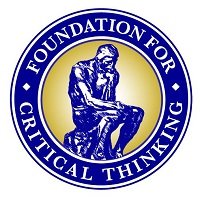Additional Information About:
Webinar: Bringing Analysis to the Center of Instruction Using the Tools of Critical Thinking
Thursday July 9th, 2020
4:30 p.m. Eastern Daylight Time (1:30 p.m. Pacific)
Duration: 50 Minutes
How is thought best analyzed in any field of study? What are the parts of thinking or elements of thought? How can you bring analysis of thought more explicitly into teaching and learning? In this webinar discussion, Dr. Elder will answer these questions, as well as your questions about how to bring explicit analysis to the core of instruction.
Prior to this discussion, please complete the numbered items listed below, which entail video, reading, and activities in the Center for Critical Thinking Community Online. During the discussion, Dr. Elder will presuppose that attendees have studied the elements of reasoning through these activities, or previously through attending our conferences, academies, or courses. Therefore the webinar will be based on the questions you bring to the discussion.
1) Study the elements of reasoning by reading the following pages in The Thinker’s Guide to Analytic Reasoning: pages 4- 7, 12-13, 22, 40-41, and 51-52.
2) Study the elements of reasoning by watching these videos:
3) Complete the following activity:
Analyze the Logic of a Problem
4) Complete this activity in writing; write out the logic of one subject you teach, focusing on the elements of thought.
Remember: you need a Center for Critical Thinking Community Online account to participate in this discussion. If you are brand new, a 30-day free trial is available.
